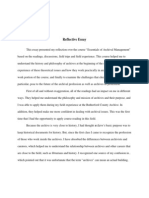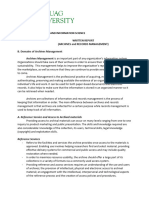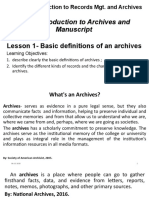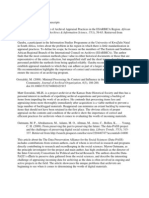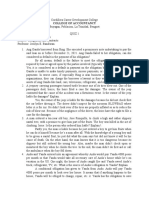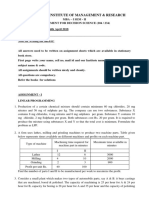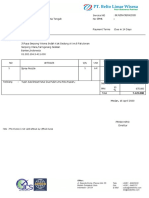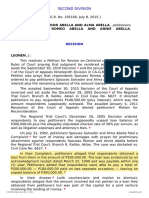0% found this document useful (0 votes)
8 views2 pagesTutorial Questions-2
The document presents a series of tutorial questions focused on the role and impact of archival institutions in society, including their contributions to transparency, community engagement, and advocacy. It addresses challenges in archival management, the importance of specialized formats, and the ethical considerations in restoration and disaster preparedness. Additionally, it emphasizes the significance of maintaining corporate memory and the potential risks associated with poor archival practices in business organizations.
Uploaded by
denisicharles49Copyright
© © All Rights Reserved
We take content rights seriously. If you suspect this is your content, claim it here.
Available Formats
Download as PDF, TXT or read online on Scribd
0% found this document useful (0 votes)
8 views2 pagesTutorial Questions-2
The document presents a series of tutorial questions focused on the role and impact of archival institutions in society, including their contributions to transparency, community engagement, and advocacy. It addresses challenges in archival management, the importance of specialized formats, and the ethical considerations in restoration and disaster preparedness. Additionally, it emphasizes the significance of maintaining corporate memory and the potential risks associated with poor archival practices in business organizations.
Uploaded by
denisicharles49Copyright
© © All Rights Reserved
We take content rights seriously. If you suspect this is your content, claim it here.
Available Formats
Download as PDF, TXT or read online on Scribd
/ 2





